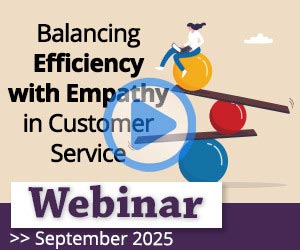Marc Carriere provides insights and advice on how to get past the gatekeepers to speak to the decision-makers within a company.
Usually the most difficult challenge when making cold calls to businesses is getting past gatekeepers so you can actually speak with decision-makers. Gatekeepers can be receptionists or other front line staff, and the biggest gatekeepers for larger businesses are personal assistants.
They’ve all been trained to not let calls get through, and they’re armed with questions like: Are they expecting your call? Who’s this? Where are you calling from? And, the killer, Why are you calling?
After you tell them why you’re calling you get: Well, they aren’t available right now, so give me your number and I’ll ask them to call you when they’re free. And you rarely hear back from the decision-maker, do you?
No Mind-Control Tricks
Here is a cold calling strategy I first came across with Ari Galper that I use personally with really, really good results that gets gatekeepers helping me get through to the decision-maker, without any ‘Jedi mind-control’ tricks, to have a genuine conversation with a decision-maker.
It’s a great strategy you need to coach your team to use to get past gatekeepers so they can actually speak with the decision-maker.
And, the counterintuitive thing about this process is you’re not trying to sell anything to anyone!
Have a Conversation – Not a Sales Pitch
It’s based on having conversations – not making sales pitches. It’s about getting the gatekeeper to help you get through to the decision-maker, without any tricks, so you can have a genuine conversation with the decision-maker to understand if you can help them.
When you eventually do speak with the decision-maker, your goal is to have a conversation with them – not to try to sell them anything. That will come eventually when the decision-maker lets you know they are interested.
Prepare a Call Guide
Before you make your call, you want to get in the right frame of mind by preparing a Call Guide you can reference to stay on track. Then just pick up the phone and make the call!
When someone answers, start off in a friendly voice by asking for some help, not the usual enthusiastic salesperson voice.
Most gatekeepers and other frontline staff respond well when asked for help, and it’s not the typical approach they hear where salespeople just try to blow past them.
This helps frame the gatekeeper’s mindset more towards service mode and away from gatekeeper mode. So, start your call along these lines following an example of one of my own personal call guides about helping businesses with high closing leads.
Hi… Maybe you can help me out for a moment?
I’m just calling to see if you know the right person over there who may be the best person to talk to about new ideas on generating high closing leads for your company.
I think Mr. Jones would be the best person to talk to about this, but I’m not sure if Mr. Jones would prefer that I spoke with someone else. Could let me know if Mr. Jones has a PA I can correspond with?
If they say yes, continue with: And, how do you spell their name, please? Thanks for that; would you mind putting me through to them, please?
If there is no PA, simply say: No problem. Would you mind putting me through to Mr. Jones, please?
Quite often you’ll find they will want to help you find the right person to speak with. However, at this point gatekeeper mode can kick in and they may ask you: Who’s this? To which you respond playfully… It’s Marc. Who’s this?
And if they ask you: Where are you calling from? Respond playfully with: From the Gold Coast. Where are you? And, you’ll probably also hear: Why are you calling? If you do, kick back into a conversational tone and say:
That’s what I’m trying to figure out. I need some help. I’m just calling to see if you know the right person over there who may be the best person to talk to in terms of new ideas on generating high closing leads for your business.
I think Mr. Jones would be the best person to talk to about this, but I’m not sure if Mr. Jones would prefer that I spoke with someone else.
Who is The Best Person to Talk to?
Could let me know if Mr. Jones has a PA I can correspond with or who might be the best person to talk to?
After going through this sequence you’ll usually find the gatekeeper will either put you through to the decision-maker’s PA, suggest someone else you should speak with or put you through to the decision-maker.
If they put you through to a PA, keep in mind that personal assistants have their pulse on all that’s going with their boss. They know what their boss wants to achieve and who they trust to get things done.
You should speak and treat PAs as you would the decision-maker because they can open doors for you as quickly as the decision-maker can. When they pick up the phone, start with:
Hi… Maybe you can help me out for a moment? I’m just calling to see if John would be open to new ideas on generating high closing leads for your company.
Who is Calling?
PA: Who’s calling?
Oh, I’m sorry, my name is Marc, and I’m the managing director of Marketing Tactics, and we specifically help companies generate high closing leads that reduce sales costs and the time it takes to make a sale.
For instance, we’ve been working with a national charity for years… and they’ve been closing new donor leads they generate through our platform at over 30%.
And we’ve helped another client in the travel industry generate over 47,000 leads last year that they’re closing 5 times higher than their other lead sources.
Then take a relaxed pause, and say: Do you feel John would be open to looking at some ideas about how to deal with that? Or is there someone else that John would want to look into this for him?
If they say that the decision-maker would be open to this, simply say: Wonderful, would you put me through please?
If they feel someone else would be better to speak with, continue with: And, how do you spell their name, please? Thanks for that… would you mind putting me through to them, please?
Could You Send Me More Information?
Often you’ll have PAs ask you to send them some information that they will pass onto the decision-maker or one of their direct reports. Simply respond by saying:
I’d be happy to. We have different solutions depending on what you might need and we cover a variety of situations, and basically, it might help to get a feel for what your issues are and what you’re trying to solve.
Can you give me a feel for, say, two or three problems right now that you’re trying to solve with lead generation for your company?
Often the PA will share some of their challenges with you and you can use this intelligence in the information you send them to personalize the benefits of your product or service to their needs.
And when you follow up on your email you can now ask for the PA because you’ve already established some rapport and that call should be much easier.
In those cases when the decision-maker answers the phone when you call or you get put through to them, start the call like you did with the PA:
Hi… Maybe you can help me out for a moment? I’m just calling to see if you’d be open to new ideas on generating high closing leads for your company.
Who’s calling?
Oh, I’m sorry, my name is Marc, and I’m the managing director of Marketing Tactics, and we specifically help companies generate high closing leads that reduce sales costs and the time it takes to make a sale.
For instance, we’ve been working with a national charity for years and they’ve been closing new donor leads they generate through our platform at over 30%.
And, we’ve helped another client in the travel industry generate over 47,000 leads last year that they’re closing 5 times higher than their other lead sources.
Then take a relaxed pause, and say: Are you open to looking at some ideas about how to deal with that?
If they say yes, continue with:
We have different solutions depending on what you might need and we cover a variety of situations, and basically, it might help to get a feel for what your issues are and what you’re trying to solve.
Can you give me a feel for say, two or three problems right now that you’re trying to solve with lead generation?
Not Interested?
If they aren’t interested in looking for new ideas, simply say something like:
How would you like an extra 1,000 (or more) high closing leads every month, ON TOP of what you‘re doing now… how much easier would your job be if you were able to do that?
And if they ask you to send some information, follow the same process as we discussed when speaking with the PA.
What Are You Selling?
If they ask you: what are you selling? Simply say:
Nothing, I’m not here to sell you anything because I don’t know if I can in anyway. I’m only calling to find out if you have any issues tied to improving the monthly sales performance of your business related to acquiring high converting leads.
If they say: We already have someone helping us with that. Respond with:
I apologize if I gave you the impression that I was trying to sell you something. In fact, I don’t really know if we can specifically help you. It just depends on if this ‘problem’ is an important one for you, and if it’s something you’d be open to looking at from a new perspective?
Closing the Call
When you come to the end of the conversation, you want to let the decision-maker feel that they are in control, so use one of these endings:
Well, where do you think we should go from here? Would you be open to me preparing a demonstration of our lead generation process for you to see if we might be a good match for each other?
Do you think it makes sense to retain our initial connection here, by circling back to a specific appointment in our calendars when we’ll talk again? That way we won’t have to chase each other.
Or
Does it makes sense to have a look at our lead gen process to see if we can help you generate new high closing donor leads that reduce sales costs and the time it takes to make a sale?
Or
Is there anything I can do to make you more comfortable about how we might be able to work together?

So, to sum up… when using this cold call strategy you’re not looking to sell anyone anything! Your goal is to find out the best person to speak with about solving one of their business’s problems.
And, when you speak with that person, you want to have a conversation with them about what their problems are so you can learn more about them to see if your product or service can help them solve them.
For more tips and advice from Marc Carriere, read our articles:
- How to Effectively Manage a Team Leader’s Time
- 7 Pillars for Creating Amazing Team Leaders
- How to Conduct a Skills Audit and Coaching Plan
Author: Marc Carriere
Reviewed by: Jonty Pearce
Published On: 26th Jul 2021 - Last modified: 6th Jan 2026
Read more about - Skills, Call Scripting, Marc Carriere, Skill Development, Soft Skills
















